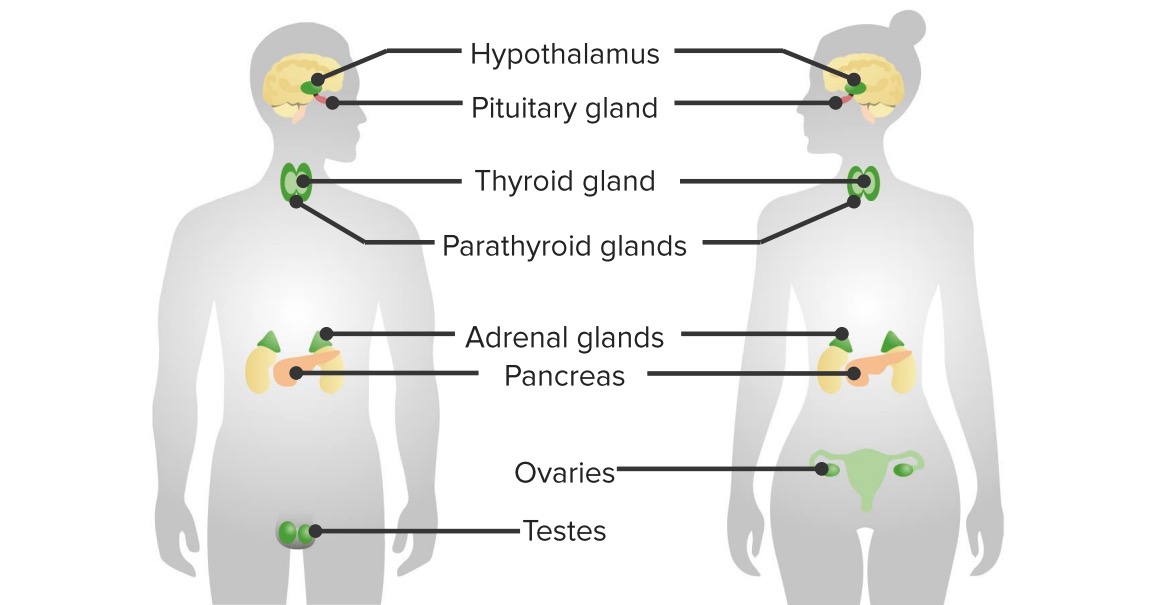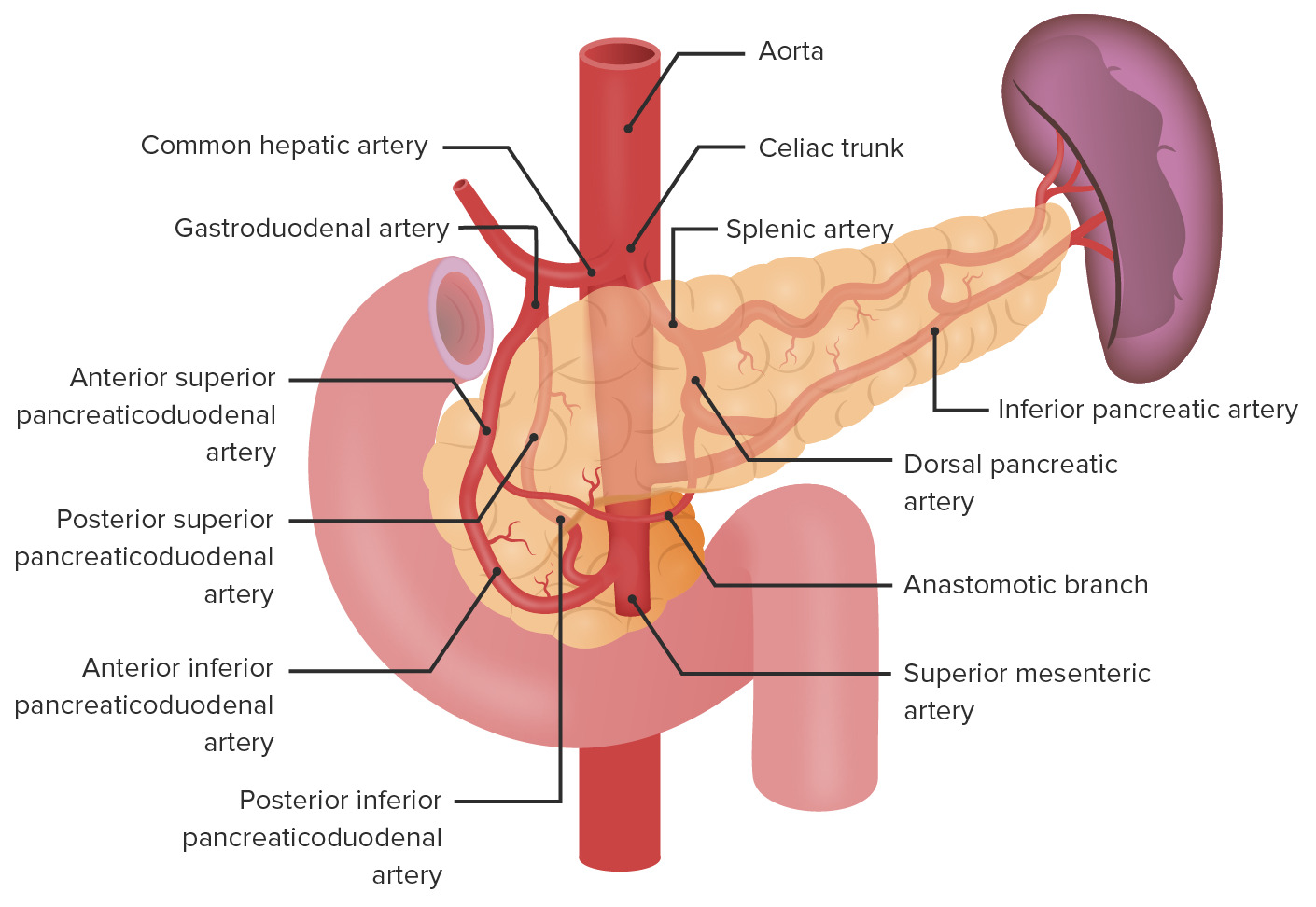Playlist
Show Playlist
Hide Playlist
Glucagon: Actions and Effects from α-Cells – Endocrine Pancreatic Hormones
-
Slides EndocrinePancreaticHormones EndocrinePathology.pdf
-
Reference List Pathology.pdf
-
Download Lecture Overview
00:01 Action and effects of glucagon from alpha cells. 00:05 So, if all this time we were dealing with insulin, let’s move on to the opposite end of the spectrum and we have glucagon. 00:13 Physiologic action of your alpha glucagon would be catabolic. 00:18 Glycogen, is it storage or is it breakdown? Glycogenolysis. 00:25 Glucose, is it glycolysis or gluconeogenesis? Gluconeogenesis. 00:32 Lipid, is it breakdown or genesis? Lipolysis. 00:39 If it’s lipolysis, what’s the name of this enzyme? It’s called hormone sensitive lipase. 00:45 I want you to come out to the picture here, effective glucagon. 00:51 Very important that you start from the left, go to the right. 00:57 First and foremost, you must know that glucagon and its target receptor works through GS and cyclic AMP, big time, because every once in a while you’ll be given a question about a phosphodiesterase inhibitor in which you increase the effect of cyclic AMP thus bringing about phosphorylation. 01:15 The enzymes are activated that are necessary for you to breakdown your lipid, enzymes are activated so that it’s necessary to break down your glycogen and promote gluconeogenesis. 01:29 Glucagon can never work by itself, it requires the help of whom permissively? Cortisol, I’ve mentioned that multiple times and when you breakdown your lipid, I want you to next move into circulation. 01:41 That tube to the far right represents blood and plasma. 01:44 You’re going to deposit and put glucose into circulation. 01:50 When you start breaking down your fat, you’re going to have ketone bodies, that’s important… acetoacetic acid, beta hydroxybutyric acid, acetone. 01:58 Collectively, what are those? Keto acids, good. 02:02 And all that is going into circulation… glucagon. 02:05 Now, we can move on, ketogenesis, and obviously, if glucagon is present you have decreased insulin action. 02:13 You notice, I did not put here no insulin action, huh? Why? In your body, you could never have just one hormone, it doesn’t work like that, okay? You just put all these glucose into circulation… great, but you need to get the glucose out of circulation and put it where it needs to. 02:37 The skeletal muscle is starving right now, remember you’re starving, this is a fasting state. 02:43 How do you get the glucose into your skeletal muscle? Of course, I need insulin. 02:49 What’s the name of those transporters? Glucose transporter 4. 02:53 Are you putting things into perspective, if you haven’t already? Even just a little bit of insulin goes a long, long way and both of these are present in your circulation, but it all depends on relative concentration, huh, relative concentration.
About the Lecture
The lecture Glucagon: Actions and Effects from α-Cells – Endocrine Pancreatic Hormones by Carlo Raj, MD is from the course Pancreatic Disease and Diabetes.
Included Quiz Questions
What would NOT occur in a patient with high levels of glucagon?
- Increased fatty acid synthesis
- Increased circulating glucose
- Increased lipolysis
- Decreased circulating insulin
- Increased glycogenolysis
Which second messenger mediates the activity of the glucagon receptor?
- cAMP
- cGMP
- Tyrosine kinase
- IP3
- Ca2+
What is NOT a product of ketogenesis?
- Glycerol
- Ketoacids
- Acetoacetate
- Acetone
- B-Hydroxybutyrate
Customer reviews
5,0 of 5 stars
| 5 Stars |
|
1 |
| 4 Stars |
|
0 |
| 3 Stars |
|
0 |
| 2 Stars |
|
0 |
| 1 Star |
|
0 |
This dr. is great at explaining everything on a very simple way. Can't thank you enough dr. Raj...





